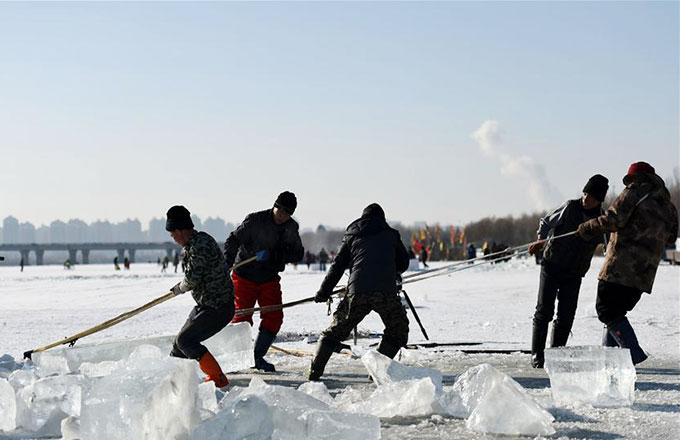CPC's time-honored tradition still crucial to rural development
Underdeveloped infrastructure is a headache for the entire village. Some houses are not connected by village roads and farmers there cannot even sell their pigs. Existing roads are simply in poor conditions and even walking on rainy days means a mud bath while sunny days bring dust clouds.
Problems were raised but all went unanswered until a new official arrived.
Since Zhong Bingfu took over village affairs, roads have been cemented so they never get muddy in rain. For farmers improved roads mean they no longer have to worry about vegetables that rotted in fields because transportation was impossible in rainy days in the past.
Cemented roads and expanded road networks have attracted agricultural companies to the village, bringing jobs and taxes. Farmers are also leasing their land to these companies, earning several times more than growing rice themselves.
Peng said the village owed a lot to Secretary Zhong, who insists there is no magic in his work. Zhong called a lot of front yard meetings at farmer's houses to listen to their grievances and needs. In these meetings, it became increasingly clear to him that his top priority would be to improve roads.
With this in mind, Zhong matched the village needs with several government projects that fund infrastructure construction in rural areas. The village received a total funding of 9 million yuan ($1.46 million) in Zhong's first year there.
The new Chinese leadership has warned that the biggest threat to the Party is alienating itself from the people, with a slew of Party members and officials appearing not to care about the people's well-being.
"Winning or losing public support is an issue of CPC survival," said President Xi Jinping in June while he launched the clean-up campaign against undesirable work styles: formality, bureaucracy, laxity and extravagance.
Zheng Fengtian, a professor of agriculture and rural development with the Beijing-based Renmin University of China, said it is essential for farmers to increase income on their own in rural areas, but as the governing party the CPC must play a guiding role.
To play such a role, Party organization must be highly influential among the people, said Zheng. In his field survey, Zheng found that in villages with depressed economic growth, Party organizations are usually divided and inactive.
"Influence of Party organizations derives from several factors, one of which is to meet the needs of people and dispel their worries. This requires Party officials to carry out the mass line," said Zheng.
















